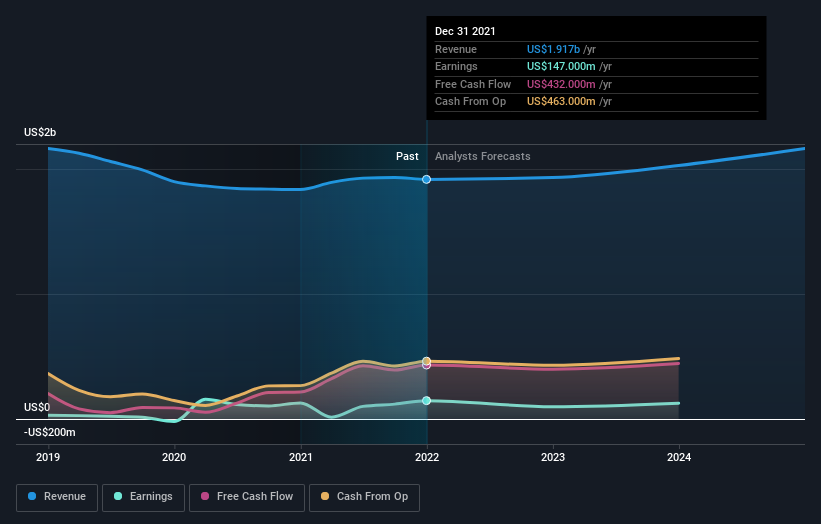
Teradata Corporation (NYSE:TDC), might not be a large cap stock, but it saw a decent share price growth in the teens level on the NYSE over the last few months. As a mid-cap stock with high coverage by analysts, you could assume any recent changes in the company’s outlook is already priced into the stock. However, could the stock still be trading at a relatively cheap price? Let’s examine Teradata’s valuation and outlook in more detail to determine if there’s still a bargain opportunity.
View our latest analysis for Teradata
What is Teradata worth?
The share price seems sensible at the moment according to my price multiple model, where I compare the company's price-to-earnings ratio to the industry average. I’ve used the price-to-earnings ratio in this instance because there’s not enough visibility to forecast its cash flows. The stock’s ratio of 32.51x is currently trading slightly below its industry peers’ ratio of 34.51x, which means if you buy Teradata today, you’d be paying a reasonable price for it. And if you believe that Teradata should be trading at this level in the long run, then there’s not much of an upside to gain over and above other industry peers. Although, there may be an opportunity to buy in the future. This is because Teradata’s beta (a measure of share price volatility) is high, meaning its price movements will be exaggerated relative to the rest of the market. If the market is bearish, the company’s shares will likely fall by more than the rest of the market, providing a prime buying opportunity.
What kind of growth will Teradata generate?

Investors looking for growth in their portfolio may want to consider the prospects of a company before buying its shares. Buying a great company with a robust outlook at a cheap price is always a good investment, so let’s also take a look at the company's future expectations. However, with a negative profit growth of -14% expected over the next couple of years, near-term growth certainly doesn’t appear to be a driver for a buy decision for Teradata. This certainty tips the risk-return scale towards higher risk.
What this means for you:
Are you a shareholder? TDC seems priced close to industry peers right now, but given the uncertainty from negative returns in the future, this could be the right time to de-risk your portfolio. Is your current exposure to the stock beneficial for your total portfolio? And is the opportunity cost of holding a negative-outlook stock too high? Before you make a decision on TDC, take a look at whether its fundamentals have changed.
Are you a potential investor? If you’ve been keeping an eye on TDC for a while, now may not be the most optimal time to buy, given it is trading around industry price multiples. This means there’s less benefit from mispricing. Furthermore, the negative growth outlook increases the risk of holding the stock. However, there are also other important factors we haven’t considered today, which can help crystallize your views on TDC should the price fluctuate below the industry PE ratio.
Keep in mind, when it comes to analysing a stock it's worth noting the risks involved. Be aware that Teradata is showing 2 warning signs in our investment analysis and 1 of those doesn't sit too well with us...
If you are no longer interested in Teradata, you can use our free platform to see our list of over 50 other stocks with a high growth potential.
Valuation is complex, but we're here to simplify it.
Discover if Teradata might be undervalued or overvalued with our detailed analysis, featuring fair value estimates, potential risks, dividends, insider trades, and its financial condition.
Access Free AnalysisHave feedback on this article? Concerned about the content? Get in touch with us directly. Alternatively, email editorial-team (at) simplywallst.com.
This article by Simply Wall St is general in nature. We provide commentary based on historical data and analyst forecasts only using an unbiased methodology and our articles are not intended to be financial advice. It does not constitute a recommendation to buy or sell any stock, and does not take account of your objectives, or your financial situation. We aim to bring you long-term focused analysis driven by fundamental data. Note that our analysis may not factor in the latest price-sensitive company announcements or qualitative material. Simply Wall St has no position in any stocks mentioned.
About NYSE:TDC
Teradata
Provides a connected hybrid cloud analytics and data platform in the United States and internationally.
Undervalued with proven track record.
Similar Companies
Market Insights
Community Narratives



